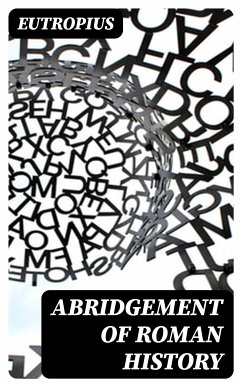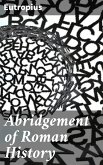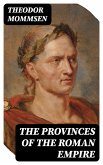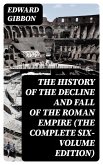Eutropius's "Abridgement of Roman History" serves as a concise yet comprehensive overview of Rome's vast historical tapestry, written in an accessible Latin style ideal for a broad audience. Comprising ten books, this work meticulously condenses the annals of Roman history from its legendary foundation to the reign of Emperor Jovian. Eutropius employs clear narrative techniques, blending elevation with simplicity, making complex events digestible for readers unfamiliar with ancient historiography. The work emerges against the backdrop of the late Roman Empire, reflecting a nostalgia for the empire's glorious past while grappling with the challenges of its contemporary decline. Eutropius, a fourth-century Roman historian and apparently a freedman, likely drew from a wealth of sources, including earlier historians like Livy and Tacitus. His background as a bureaucrat within the imperial court bestowed him a unique perspective on Rome's historical evolution. The need to educate a growing population about their heritage may have motivated Eutropius to produce this abridgment, aiming to instill a sense of identity and continuity amid turbulent times. Highly recommended for scholars and enthusiasts alike, "Abridgement of Roman History" invites readers to explore Rome's monumental legacy through Eutropius's lens. This book not only fills a crucial gap in the canon of Roman historiography but also serves as an introductory text for those seeking to understand the complexities of Roman identity and the historical forces that shaped an empire.
Dieser Download kann aus rechtlichen Gründen nur mit Rechnungsadresse in A, B, BG, CY, CZ, D, DK, EW, E, FIN, F, GR, H, IRL, I, LT, L, LR, M, NL, PL, P, R, S, SLO, SK ausgeliefert werden.









